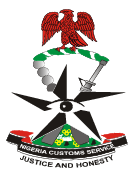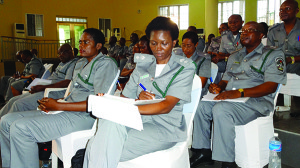By Achum Tobechukwu Valentine
As an undergraduate at the University of Calabar, my final year thesis was on: “Information Communication Technology and Revenue Generation. A case study of Nigeria Customs Service, Apapa- Lagos’’. This project, which explains how NCS can improve efficiency, block revenue leakages and more importantly, generate more revenue for government through systematic deployment of ICT infrastructure, had me bestriding Calabar and Lagos to gather data that will aid me in completing the project. This was between 2013 and 2014. At that time, the state of the Nigerian economy was not as critical as it is now. These days, because of the parlous state of the economy, experts such as Bismarck Rewane, Prof. Pat Utomi, Henry Boyo and my lecturer- Mr Okonette Ekanem, among others, are often sounding loud warnings about how falling oil prices could harm our economy.
This is 2015! The problem has become worse than it was when I wrote that thesis last year and the loud warnings have since turned into loud wailings. However, my concern still remains unchanged: The question is: How can the Nigeria Customs Service improve its revenue collection efforts to address the Federal Government’s revenue challenges? My reason for writing about the Nigeria Customs Service very often is largely because I do not know how not to write about it. I also do not know how not to think about it. During holidays, my father who retired as an area Comptroller of Customs would always take me to the port, border post and even the Customs Training School in Ikeja.
However, my own guilt lies in how to research on ways to increase the capacity of Customs to be able to generate more income for government and decrease the effect of dwindling oil income. It should be recalled that the Nigeria Customs Service has been consistent in meeting up revenue targets. Under the stewardship of the immediate past Comptroller General, Inde Abdullahi Dikko, the service reportedly was able to generate its highest revenue ever of N977.09 billion in 2014. This was described as impressive! However, with ongoing efforts by government to further strengthen non-oil income as a result of plunging oil earnings, greater efforts need to be put in place by the current Comptroller General, Col. Hameed Ali (retd) and his team.
One area that needs to be looked at is the operation and management of its ICT infrastructure for effective trade facilitation and increased revenue collection. Customs all over the world have identified and adopted the use of scanning equipment for efficient Customs administration. This is pertinent due to the fact that scanners reduce time in inspecting goods and bring about the ease of doing business. In particular, scanners produce x-ray images of goods being transported in containers, tankers or even break bulks. In addition, the scanned images also reveal concealed items in any part of the conveyance. Upon generating the x-ray images, the Customs personnel analyse the image against a Customs declaration lodged by the importer or clearing agent. This forms the basis of whether the conveyance is carrying some undeclared goods or whether the goods are under-declared.
Within the African continent, Malawi which is ranked by a World Bank survey as one of the best countries to do business has mobile scanners in all its five major ports which include Mwanza border, Blantyre Port, Lilongwe Port and Songwe border. These have tremendously helped to increase the country’s revenue by saving time for inspecting goods. Also, in Zambia, they have scanning machines in their major borders of Chirundu, Kalimamulilo, Kazungula and Chaninda border post- its main gateway to neighbouring Mozambique. In fact, the Zambian Revenue Authority (ZRA) is also expecting the delivery of rail scanners at both Kapiri- Mposhi and Kasumbelesa, and other scanners are nearing completion from construction at Mwami and Nakonde borders.
The acquisition of such ICT equipment by these countries such as Malawi and Zambia should be enough to challenge Nigeria. It underscores the importance of ICT in 21st century Customs administration and trade facilitation. However, this is not to say that Nigeria does not currently have such sophisticated tools in its various Customs commands. Recall that in January 1, 2013, after the handover of Destination Inspection (D.I) by Cotecna to Nigeria Customs service, a number of scanning equipment were purchased and constructed, and a total of 300 officers were trained to operate the devices to cover all the ports and borders that had scanners. However, available statistics show that most of these scanning equipment have gone bad. Both fixed and mobile scanners are in sordid state. Recently, they had to ‘import’ scanner from Calabar to Apapa, even though sources has it that the ‘imported’ scanner is poorly maintained and not in good condition.
The solution is that the 300 officers that were trained were inadequate to efficiently man the various scanning machines spread across the various borders and ports in the country. The truth is that no amount will be too much! For optimum use of the scanning device, training on its operation and management must be part and parcel of the course modules being taught in both the Lagos and Kano Customs training schools. Just as they are being taught to learn about ‘combined revenue enforcement’ and being baptised with the seven golden ‘Cs’, the skill on how to effectively and efficiently operate and manage scanning devices of various brands must be impacted to new recruits as well as old officers. When this is done, there must be a procedure to centralize all scanning devices in the various area commands to one central system just like the electronic card reader system used during the 2015 general elections. By this, all activities of every functioning scanners shall be read and recorded by a central data management system. This is important for audit purposes. It will also help reduce the connivance between importers and Custom officers and significantly block revenue leakages in the institution.
While I think it will not be a bad idea to contract scanning operations once again in order to address the challenges of poor management of these scanners by officers, this will give the current Customs management team led by Col. Ali the space to go back to the drawing board and invest in constant training and retraining of Customs personnel on the operation and management of such a delicate ICT infrastructure to be able to function at optimum capacity in order to help increase professionalism, improve revenue collection, block revenue leakages, and consequently shore up revenue generation.
Sun









